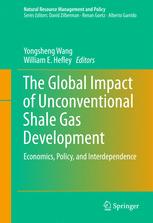

Most ebook files are in PDF format, so you can easily read them using various software such as Foxit Reader or directly on the Google Chrome browser.
Some ebook files are released by publishers in other formats such as .awz, .mobi, .epub, .fb2, etc. You may need to install specific software to read these formats on mobile/PC, such as Calibre.
Please read the tutorial at this link: https://ebookbell.com/faq
We offer FREE conversion to the popular formats you request; however, this may take some time. Therefore, right after payment, please email us, and we will try to provide the service as quickly as possible.
For some exceptional file formats or broken links (if any), please refrain from opening any disputes. Instead, email us first, and we will try to assist within a maximum of 6 hours.
EbookBell Team

4.1
10 reviewsThis book discusses the economic, political, and environmental issues surrounding the international exploration and exploitation of conventional and unconventional natural gas. Shale gas development in recent years has changed the energy discussion in the US as existing reserves of natural gas coupled with horizontal drilling and hydraulic fracturing make exploitation of these reserves economically feasible; the discussion is quickly becoming international in scope. The potential expansion of natural gas development impacts many regions of the globe and spans multiple perspectives. In a volatile international climate, one of intense geopolitical conflict between Russia and the West, economic slowdowns in Europe and China, military conflicts in the Middle East and northern Africa, and widening income disparity in the U.S., a relatively inexpensive and plentiful energy source like shale gas could play a key role in mitigating such conflicts. In an energy interdependent global community, however, multiple factors such as oil prices, differing rates of exploration, environmental concerns, strategic initiatives, institutional changes, legal and regulatory issues, and actions of the nations involved all have the potential to influence future outcomes. This book discusses each of these in turn, detailing the issues most prevalent in each geographical area. The first volume to provide a comprehensive global view of the impacts of shale gas development, this book fills a gap in the current research literature, providing vital information for the scholarly community and the public alike. This book will be of interest to researchers and students of economics, energy policy, public administration, and international relations as well as policy makers and residents of the regions that are experiencing shale gas development.